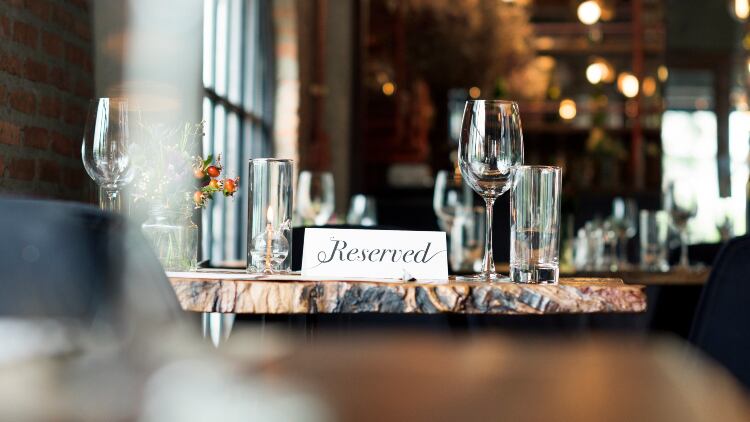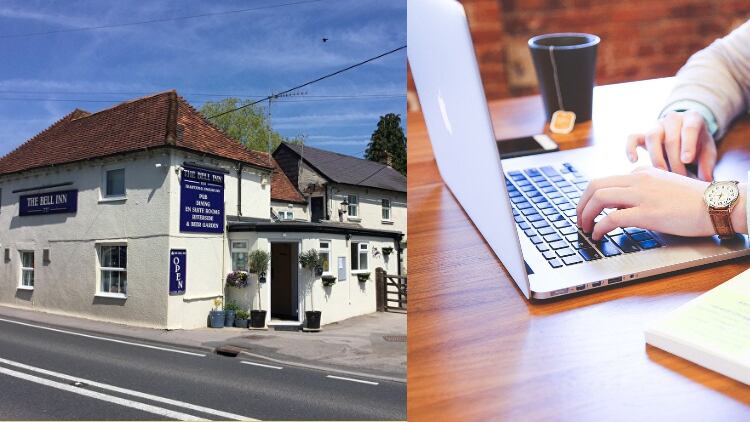The restaurant industry could be losing out on up to £16bn in revenue every year from no-shows, according to 2016 figures from online reservation system ResDiary.
Last year, the average restaurant lost 11.8 full bookings per month through no-shows, according to the same source.
The burden of cancellations has meant the number of venues taking a form of payment protection has risen.
There was a 40.1% increase in businesses using methods like ticketing and deposits, storing card details to charge the card if they fail to show in 2018.
A quarter of 16 to 24-year-olds admitted they regularly failed to show up for a food reservation, in a survey by OpenTable.
The no-show culture
Reasons for not warning a venue included customers thinking it was too late to cancel, forgetting, and not knowing how to cancel a reservation.
Overall, slightly more than a third of diners (33.7%) admitted to being a no-show, with commitment from phone bookings slightly better than online reservations.
Last year, 4.4% of online bookings through OpenTable’s platform ended up in a no-show, in comparison to 4.6% of reservations made over the phone.
Operators have called out for the trade to take a stand and charge a deposit payment for bookings in order to reduce the number of no-shows.
Booking system ResDiary stated the number of restaurants taking some form of payment in advance increased by 40% in 2018.
It also revealed online bookings through its system had soared by 130% in the past five years and almost 60% of all bookings are now made through mobile devices.
Furthermore, Zonal said a 2015 survey by a restaurant booking system found British restaurants were losing £16bn a year due to no-shows.
The National Restaurant Association of American says operators should wait 15 minutes before declaring a no-show.
To combat the issue, operators should move towards technology to help them deal with the industry-wide issues of no-shows, according to a booking expert.
Record the details
No-shows can cost pubs money and the staff its jobs but operators also need to join forces in a bid to tackle the issue.
UK online discovery portal DesignMyNight co-founder Nick Telson says: “Pub operators are trying, with the tools they have, to deal with the issue of no-shows.
“However, a great deal of this is manual and hugely labour-intensive, with hosts/managers having to call customers to double-check they are coming in, or for [credit] card details.
“With the hundreds of other tasks front of house needs to deliver every day, the reality is checks will, at times, get missed.
“I would also recommend that pub operators mark customers as no-shows in their booking system. This allows them to keep a list of regular offenders and send them a friendly, but informative, email or they have the option to stop them from making future bookings.”
He explains that taking deposits can be a good idea to secure bookings and claw back some money for no-shows, but this needs to be handled carefully.
Telson adds: “Pub operators need to manage this with discretion. Does an operator need to take card authorisation for a group of two diners on a Monday?
“Probably not. I would recommend tailoring it to the busier service periods. For example, deploying it on bookings of six or over from Monday to Wednesday, groups of four or more on a Thursday and across all bookings on a Friday and Saturday.
“A card authentication is a lot ‘softer’ than a deposit, which will alleviate the concern of a drop in bookings.”
He also called for the industry to come together in order to showcase the effect no-shows have on business.
“Pub operators and service providers need to work together as one community to highlight the impact of no-shows to the press and through social media channels,” Telson said.
“Pubs, no matter how large, are businesses that employ a ton of people who rely on that employment for their livelihood.
“It is very simple, multiple no-shows puts jobs at risk. Customers tip waiting staff because they appreciate the job they do and know they often rely on tips to maintain a liveable wage.”
Calculated measures
One operator that does take part-payment up front is the Parkers Arms in Newton-in-Bowland, Lancashire chefpatron Stosie Madi.
She says: “We take deposits and tell them in the week leading up to the event, this deposit is non-refundable, meaning they have a week to cancel.
“We call all our bookings and confirm with them. We also try and take the remaining balance of the booking for ‘special occasion’ days like Valentine’s Day, Easter, etc.
“But this doesn’t take away from the issue. People will pay a deposit and still not show up, even though they know it is non-refundable.”
Madi outlines how she thinks the trade should tackle this problem. She says:
“Businesses have to stand up and take calculated measures on how to survive.
“If that means taking full payments in advance on certain ‘special’ days, and needing strict terms and conditions for those who don’t turn up, then so be it.
“It is high time restaurants stood together and developed a system that we all do so no one gets ostracised from it.
“If it becomes the norm, no one will think it is odd – and there is strength in numbers.”
Beware of discouragement
Pubs can put a variety of different procedures in place in a bid to avoid no-shows but this could mean customers go elsewhere, fellow operator Karen Errington of the Rat Inn, Anick, Northumberland, says.
She adds: “There are procedures that you can put in place on the booking platform to discourage this such as requiring credit card details when booking.
“As a small business, we considered this and I am sure it would reduce no-shows but we don’t have the luxury of being full across every service so we decided that the fewer barriers we put in front of people to discourage booking, the better.
“There is no way of knowing how many wouldn’t bother to complete the booking and instead go to a competitor if credit cards were required.”




